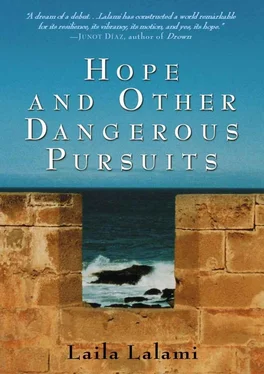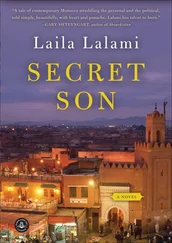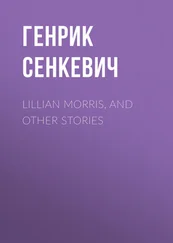A FEW DAYS LATER Aziz went to visit his father’s grave. Zohra led the way, walking swiftly among the rows of white headstones gleaming in the morning light. She stopped abruptly in front of one. Aziz’s father’s name, Abderrahman Ammor, was carved on it, followed by the prayer of the dead: “O serene soul! Return to your Lord, joyful and pleasing in His sight. Join My followers and enter My paradise.” The date of his death followed: 27 Ramadan 1420.
Aziz recalled one day in 2000 when a letter had arrived announcing that his father had passed away. Zohra didn’t have a telephone, so he had called the grocer and asked that someone get her. He had called back fifteen minutes later, but there was oddly little to say. By then his father has already been dead a month, and the event carried no urgency. He felt a great deal of shame at not being able to cry. In Madrid, life went on, and his grief, having no anchor, seemed never to materialize. Now he found it hard to conjure it on demand.
“I wish I had been there in his last days,” Aziz said.
“The entire derb came to his wake,” Zohra said.
Aziz got down on his knees and took out a brush from Zohra’s bag. He started clearing the dead leaves from the headstone. “I wish I had been there,” he said again.
Zohra kneeled next to him. “I don’t want the same to happen to us. We should be together.”
Aziz took a deep breath. He had waited for her to make up her mind, and now that she seemed to agree with him, he didn’t feel the sense of joy he expected. When they left the cemetery, he told Zohra that he wanted to go for a walk before dinner, so while she took the bus home he headed downtown, to the Avenue des Forces Armées Royales. At the Café Saâda he peeked inside and saw the patrons standing at the bar or sitting in groups, huddled over their beers and gin tonics. On the terrace, customers sat indolently over their mint tea. He chose a seat outside, in the sun, and ordered an espresso. He looked around. Something struck him as odd, but he couldn’t quite put a finger on it. It wasn’t until the waiter came back with his coffee that he realized there were no women at all.
Some of the men played chess, others smoked, many read the newspaper. Those who sat closest to the stream of pedestrians passed the time by watching people, whistling every now and then if they saw a pretty girl. Aziz wondered why the place was so packed in the middle of the afternoon on a Wednesday, but the serious expression on everyone’s face provided an answer to his question. They were unemployed. Aziz finished his coffee and left a generous tip before walking down the avenue. The fancy shops displayed leather goods, china, silk cushions, souvenirs, expensive wares that he knew most people in his neighborhood could never afford.
By the start of his second week in Casablanca, Aziz had seen every sibling, cousin, neighbor, and friend. He had heard about the weddings, births, and deaths. He had been appropriately shocked at how much his nieces and nephews had grown. But he found little else to do. The movie theaters showed films he’d already seen. He’d have liked to go to a nightclub, but he couldn’t imagine Zohra going with him or even letting him go. Most of the programs on TV bored him, and unlike all their neighbors, Zohra refused to have a satellite dish. “No need to bring filth into the house, there’s enough of it on the street” was how she put it. So he sat at home, on the divan, and waited for time to pass.
ON THE EVE of his departure, Aziz took his suitcase out of the armoire and began packing. Zohra sat on the bed, watching him. When he finished he took out a stack of bills from the inside pocket of his suitcase. He put the money in her hand. “This is all I have.”
Zohra didn’t move. She kept looking at him.
“I’ll save more,” he said, “and then I’ll come back.”
There was a skeptical look in Zohra’s eyes, and it made Aziz feel uncomfortable. What did she expect of him? He couldn’t give up an opportunity to work just so he could be at home with her. Did she have any idea what he’d gone through to make it in Spain? He couldn’t give it all up now. He had to go back.
The grandfather clock chimed the hour.
“When are you sending me the papers?” she asked, at last.
“I don’t know,” he replied.
Zohra started crying. Aziz tapped her shoulder, in an awkward attempt at consolation. He couldn’t imagine her with him in Madrid. She was used to the neighbor’s kid pushing the door open and coming in. She was used to the outdoor market where she could haggle over everything. She was used to having her relatives drop in without notice. He couldn’t think of her alone in an apartment, with no one to talk to, while he was at work. And he, too, had his own habits now. He closed his suitcase and lifted it off the bed. It felt lighter than when he had arrived.
MURAD WAS SITTING behind the counter, reading a book, when the two women came in. It had been a quiet afternoon, disturbed only by the metronomic sound of the crackling radio at his feet, yet he’d had a hard time losing himself in the imagined world of the novel, even though it was set in Tangier. Or maybe it was because it was set in Tangier that he hadn’t been able to reconcile the fictional world he was reading about with the one he experienced every day. He’d caught himself editing the author’s prose — correcting an inaccurate reference and rewording the characters’ dialogue — but that wasn’t it. Something was missing. He’d gotten the book from the American Language Center, where neither of the overworked clerks bothered to check his long-expired membership card before stamping the book and handing it to him. He spent many hours there after work, trying to find something in the fiction section he hadn’t yet read. There was another reason for his frequent visits to the center — a slender girl with lovely brown eyes who smiled at him over her copy of Heart of Darkness the first time he saw her. They’d just started seeing each other a couple of months ago. In time, Murad thought, he could introduce her to some of his favorite novels, the one in his hands at the moment not qualifying for that list.
The women’s entry into Botbol Bazaar and Gifts provided a welcome distraction, and so he stood up, tossing the book aside. Anas, the other salesman, was slouched on a chair in the corner, snoring softly, as he did most afternoons. The owner was in Agadir on vacation, and Murad had been given the keys to the shop, much to the dismay of Anas, who’d been working there longer. Still, Murad got along reasonably well with him, mostly because he didn’t mind when Anas took long breaks from the shop under the guise of going to get cigarettes or when he spent the afternoon asleep. Anas’s head bobbed and jolted him awake. He looked around at the shop, saw the two women, and snapped to attention.
The women were both young, perhaps in their late twenties. One wore jeans and a loose henley shirt and a burlap bag whose strap crossed her chest, separating her breasts. Her strawberry blond hair was secured with a chopstick at the back of her head. Her friend, a dark-haired, heavy-set girl, was breathing heavily, having just come up the steep hillside street outside. Her blue shirt was stained under her arms, and she carried a handbag with the designer’s name boldly proclaimed on the side. She walked straight to the jewelry case, where silver earrings were displayed next to coral-inlaid bracelets and amber bead necklaces. “How about something like this, Sandy?”
Sandy stood over the display case, looking bored and in a hurry to leave. “Jewelry is so personal,” she said. “Your cousin might not like what you pick.”
Читать дальше












